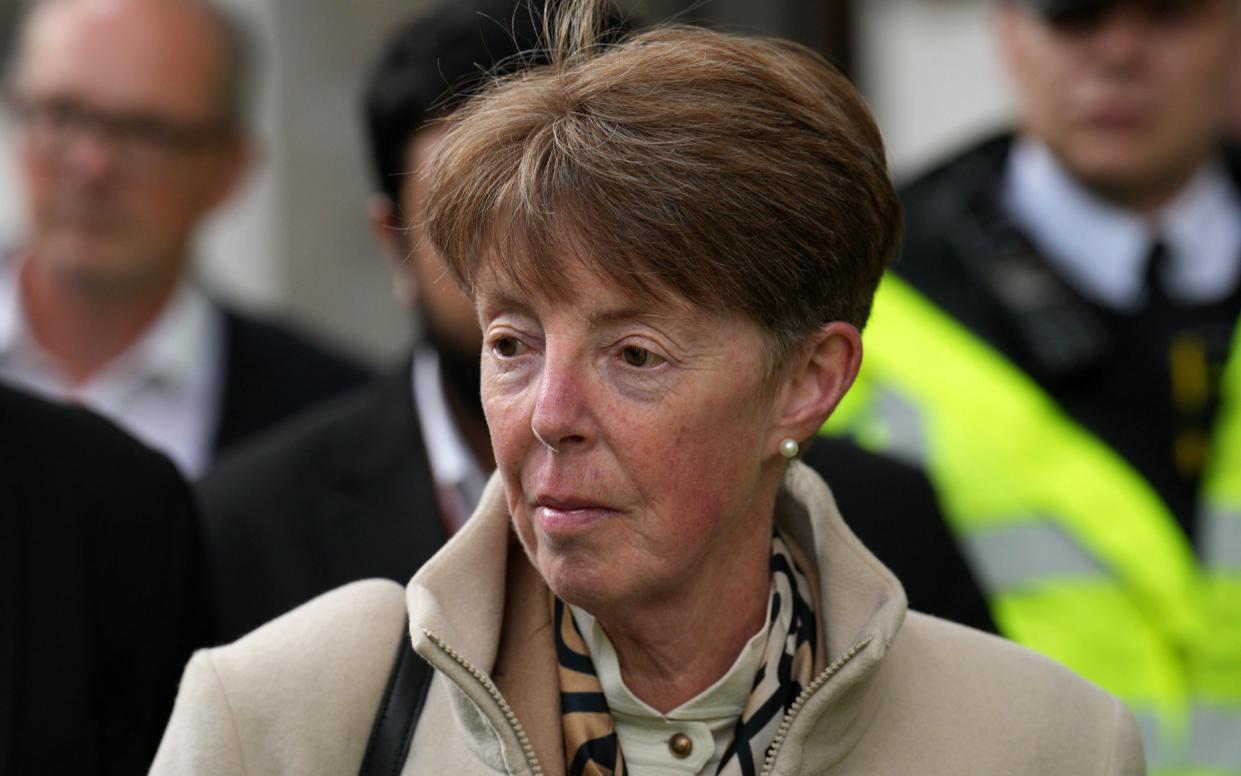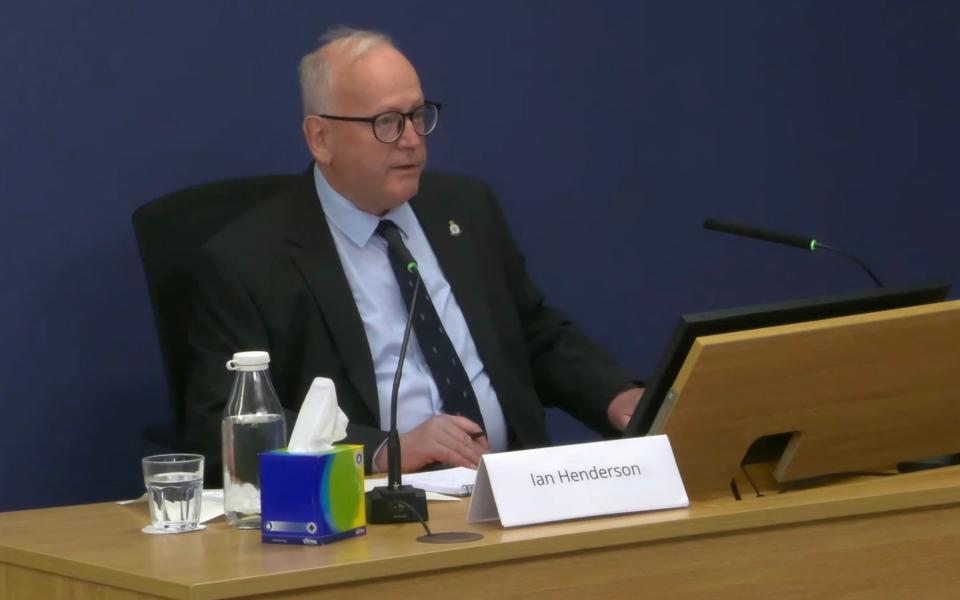Paula Vennells tried to steer investigators away from wrongful convictions, Post Office inquiry told

Paula Vennells attempted to “steer” investigators away from looking at wrongful Horizon convictions, a forensic accountant has told the Post Office inquiry.
Ian Henderson was one of two directors from the firm Second Sight which was paid to review sub-postmaster complaints in 2012, following increasing pressure on the business from MPs and campaigners.
Ms Vennells, the former Post Office chief executive, was already in her role when Second Sight began its inquiry in mid-2012.
Mr Henderson told the inquiry on Tuesday how the actions of lawyers and executives led him to suspect a cover-up and that the Post Office thought it was “above the law”.
More than 900 branch workers were wrongfully prosecuted as a result of faulty Horizon software, which saw shortfalls incorrectly recorded on their accounts.
Mr Henderson began Tuesday’s hearing by making one correction to his 60-page witness statement - changing former sub-postmaster Alan Bates’ name to Sir Alan Bates to reflect his recently announced knighthood.
It prompted some cheers throughout the packed hearing room in central London.
In his witness statement, Mr Henderson said: “Paula Vennells frequently and consistently, attempted to steer Second Sight away from investigating potential miscarriages of justice.”
The chartered accountant went on to detail how when he first met Ms Vennells, she told him that the Post Office was “the nation’s most trusted brand with a history of over 400 years”.

Mr Henderson, who is a member of the high-IQ society Mensa, wrote that as Second Sight’s work continued he “increasingly formed the view that because of this history”, the Post Office “somehow felt it was above the law” and didn’t need to comply with disclosure obligations in criminal cases.
An interim report produced by Mr Henderson in July 2013, alongside Second Sight colleague Ron Warmington, identified two bugs in the software system that caused problems for 76 branches.
The forensic accountants were sacked in 2015, and Mr Henderson said he believed they were dismissed because they were “getting too close to the truth”.
Mr Henderson wrote in his witness statement of how that year, in his opinion, “it was beginning to look like a cover-up” when the Post Office’s then-head of legal tried to assert documentary privilege - the right to keep legal advice private - over a report which undermined the prosecution of former sub-postmistress Jo Hamilton.
Mrs Hamilton had been prosecuted in 2006 after being wrongly accused of stealing more than £36,000 from her branch in South Warnborough, Hampshire.
She pleaded guilty to a lesser charge of false accounting in the hope that she would avoid a jail sentence with a theft conviction.
Mr Henderson also said this work in a scheme which sought to mediate cases was “probably the most challenging in the 40 years” of his career as a chartered accountant.
He said: “One of the reasons it was challenging was that POL [Post Office Limited] would say one thing in public, and then do something different in private.
“An example of this was Paula Vennells’ statement to the Parliamentary Select Committee in February 2015, that our work had found ‘no evidence of miscarriages of justice’ and ‘it was important that we surface any miscarriages of justice’.
“Paula Vennells frequently and consistently attempted to steer Second Sight away from investigating potential miscarriages of justice.”
Ms Vennells gave evidence to the inquiry last month and repeatedly broke down in tears and apologised for her part in the scandal.
Mr Henderson, who disclosed that a diagnosis of high-functioning autism could explain his “somewhat obsessive interest in data and documents”, said he and Mr Warmington were “constantly having to fight” for paperwork they needed from the Post Office.
‘I felt we were dealing with a cover-up’
He wrote: “By February 2015, I no longer had confidence that POL was taking our concerns seriously or dealing with them in an appropriate manner.
“I felt we were dealing with a cover-up by POL and possibly a criminal conspiracy.
“I was concerned about the various threats that had been made to me by POL concerning alleged breaches of my NDA and my duties of confidentiality.
“Accordingly, I had to find a way of communicating my concerns, but which limited the risk of a legal action against me, or Second Sight, by POL.
“The most likely threats appeared to be an action for defamation, breach of confidence or breach of contract.”
After finishing his evidence session, Mr Henderson told The Telegraph that he thought police had enough evidence to embark on prosecutions now, and that there was no need to wait until the inquiry was complete.
When asked if he thought police should start pursuing prosecutions now, he said: “Yes, I do - very strongly. They don’t need to wait.”
Mr Henderson said he believed those who may face prosecution could “possibly” include Post Office and Fujitsu executives, adding: “That’s for the police to decide - [they need to] investigate, then prosecute.
“I’ve given two witness statements. I can’t really talk about them but I know they are interested in a number of individuals and it’s up to the police and prosecution service to follow that up.”
‘Ferocious and determined pushback’
Giving evidence to the inquiry later on Tuesday, Mr Warmington said in his witness statement that he had “never before encountered such ferocious and determined pushback from a business or client” before Second Sight began embarking on the Post Office probe.
He added: “I was very used to dealing with conflict in my profession but had never encountered such ferocious resistance to almost every sentence used in every report.
“Every point we raised, that we knew to be true, received monstrous and illogical pushback.”
The inquiry was also shown a transcript of a conversation the forensic accountant had with a sub-postmaster in 2014.
Mr Warmington said that having investigated fraud in 110 countries around the world, he had “never come across anything as bad as this”.
He went on to tell the sub-postmaster: “This is the worst corporate behaviour I’ve ever come across.”
When asked by Jason Beer KC, the lead counsel to the inquiry, whether this was “an accurate view” of his engagement with the Post Office, Mr Warmington said: “It’s exactly what I felt there and still feel now.”

 Yahoo News
Yahoo News 
